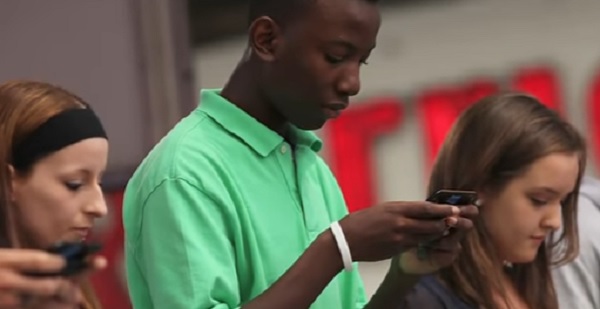By Jamie Nelson, | November 28, 2016

A study has found that students struggle to tell the difference between real and fake news stories. (YouTube)
With fake news stories doing the rounds on social media, a study has revealed just how much it is affecting young students. The results of the study suggest that students in junior high and college do not have the skills to differentiate between fake and real news stories.
The History Education Group at Stanford University conducted the study titled "civic online reasoning," Digital Trends reported. The study set out to assess the ability of young people to understand the credibility of information made available through social media and through devices such as tablets and smartphones.
Like Us on Facebook
"Many people assume that because young people are fluent in social media they are equally perceptive about what they find there," the lead author of the study, Stanford University Professor Sam Wineburg, said. "Our work shows the opposite to be true."
The study examined the views of more than 7,000 students from 12 different states. The study was conducted from January 2015 to June 2016. The schools varied from "under-resourced" city schools in Los Angeles to "well-resourced" schools in cities such as Minneapolis.
The results revealed that more than 80 percent of students were unable to tell the difference between fake and real news. According to the study, students found articles published on social media hard to judge.
The researchers found that students often based assessments on factors that were irrelevant including the size and clarity of the images used in the stories. Social media sites that carried spoof news were judged as being credible by students in the study.
Middle school students were asked if they would trust an article about financial planning if it was written by a bank executive and sponsored by a bank, Fortun reported. The students apparently did not see the sponsored nature of the article or the author's workplace as an issue.
In addition, the study found that a significant number of students consider Facebook posts as being accurate and trustworthy. Factors such as the individual or the organization that posted the content were not factors that were considered by the students.
Watch the video for more information:
-
Use of Coronavirus Pandemic Drones Raises Privacy Concerns: Drones Spread Fear, Local Officials Say

-
Coronavirus Hampers The Delivery Of Lockheed Martin F-35 Stealth Fighters For 2020

-
Instagram Speeds Up Plans to Add Account Memorialization Feature Due to COVID-19 Deaths

-
NASA: Perseverance Plans to Bring 'Mars Rock' to Earth in 2031

-
600 Dead And 3,000 In The Hospital as Iranians Believed Drinking High-Concentrations of Alcohol Can Cure The Coronavirus

-
600 Dead And 3,000 In The Hospital as Iranians Believed Drinking High-Concentrations of Alcohol Can Cure The Coronavirus

-
COVID-19: Doctors, Nurses Use Virtual Reality to Learn New Skills in Treating Coronavirus Patients











